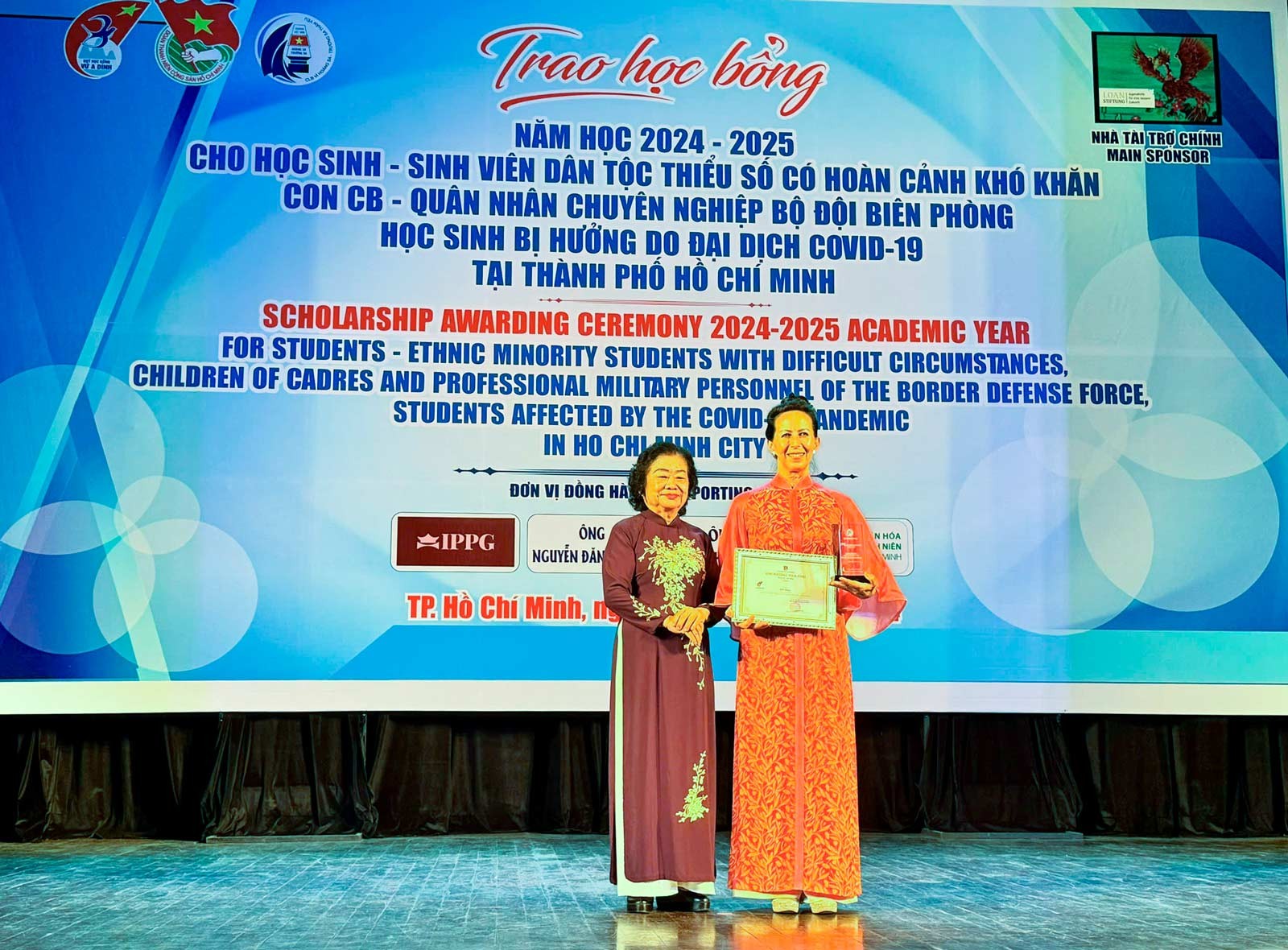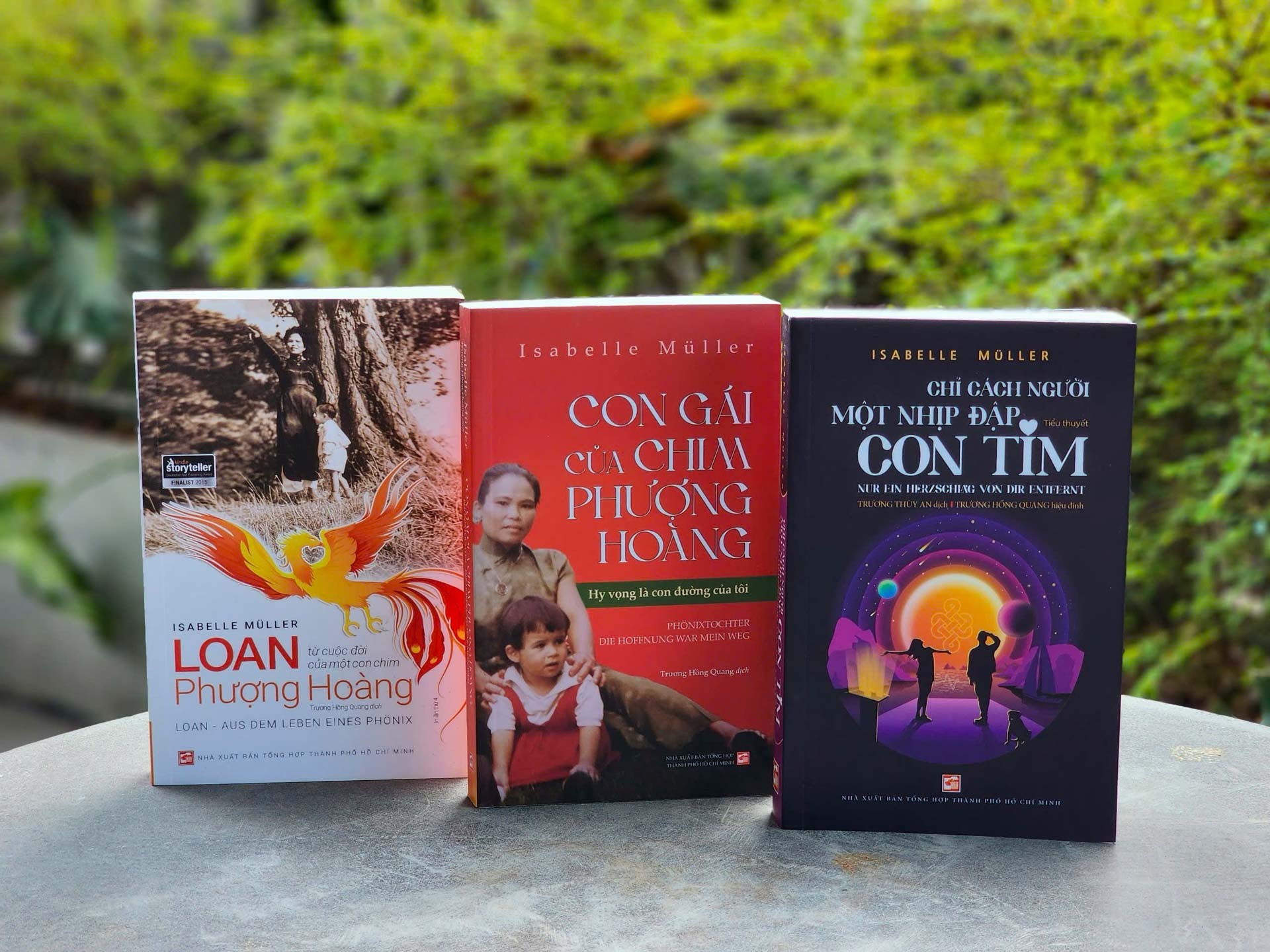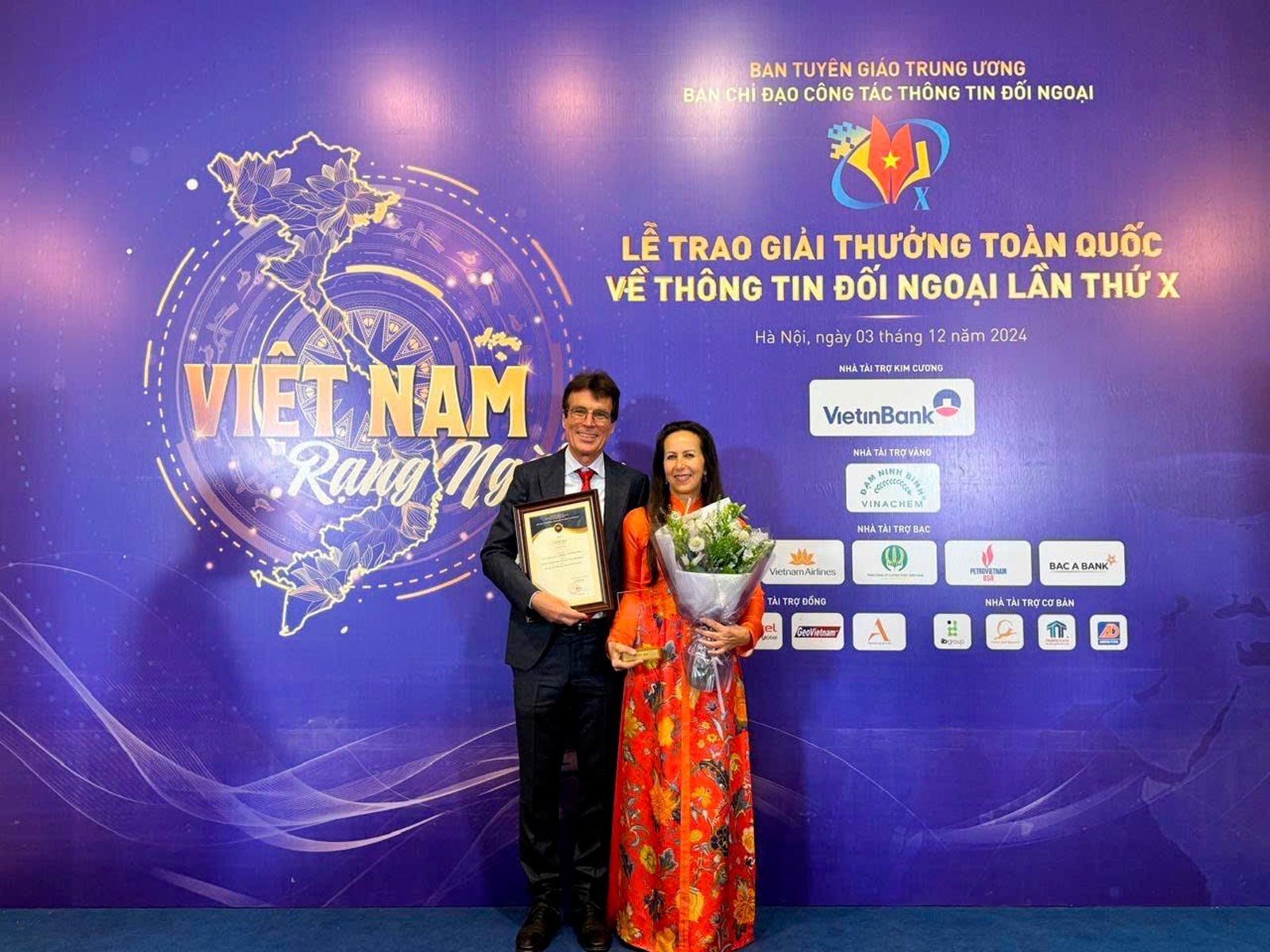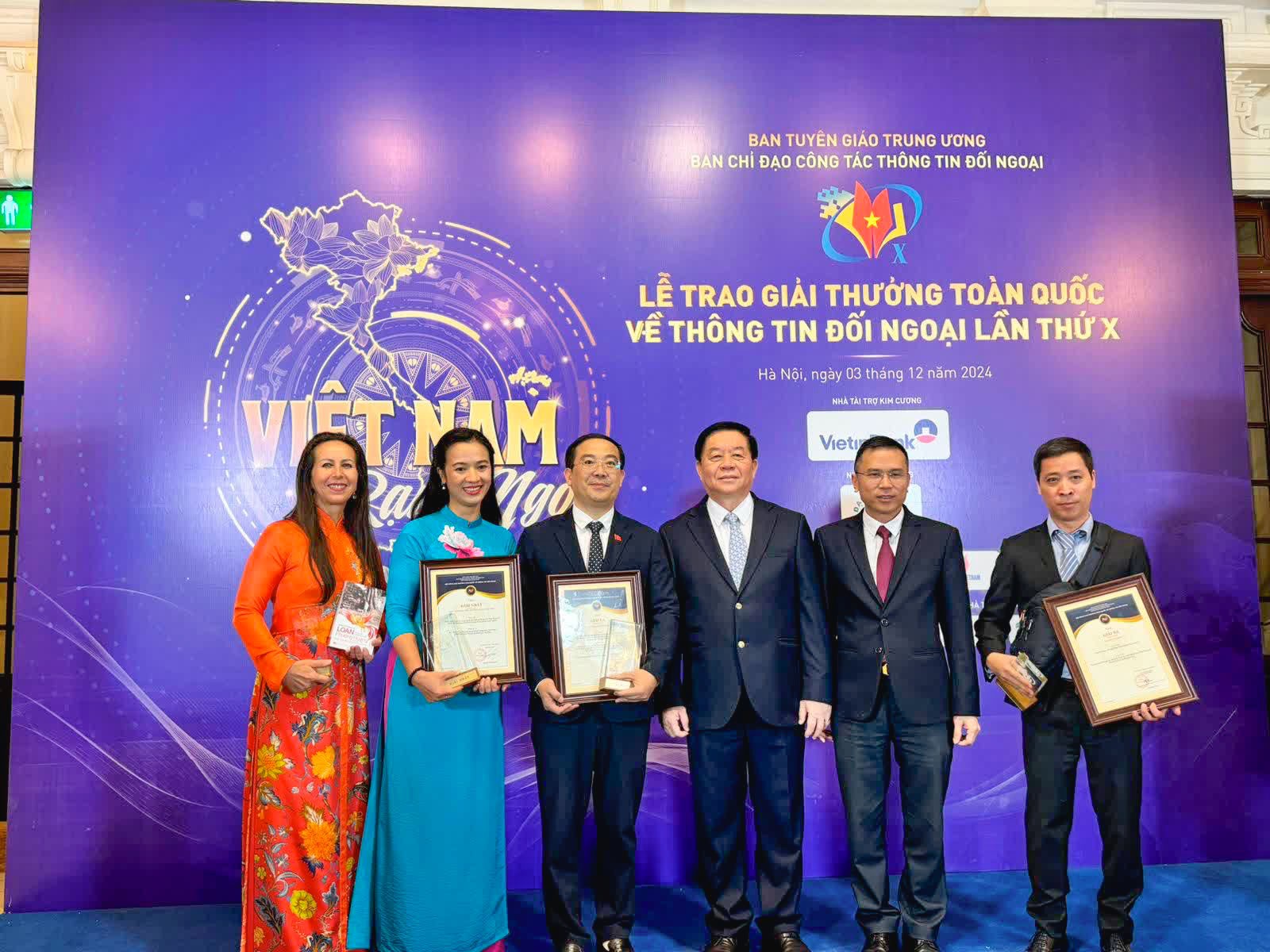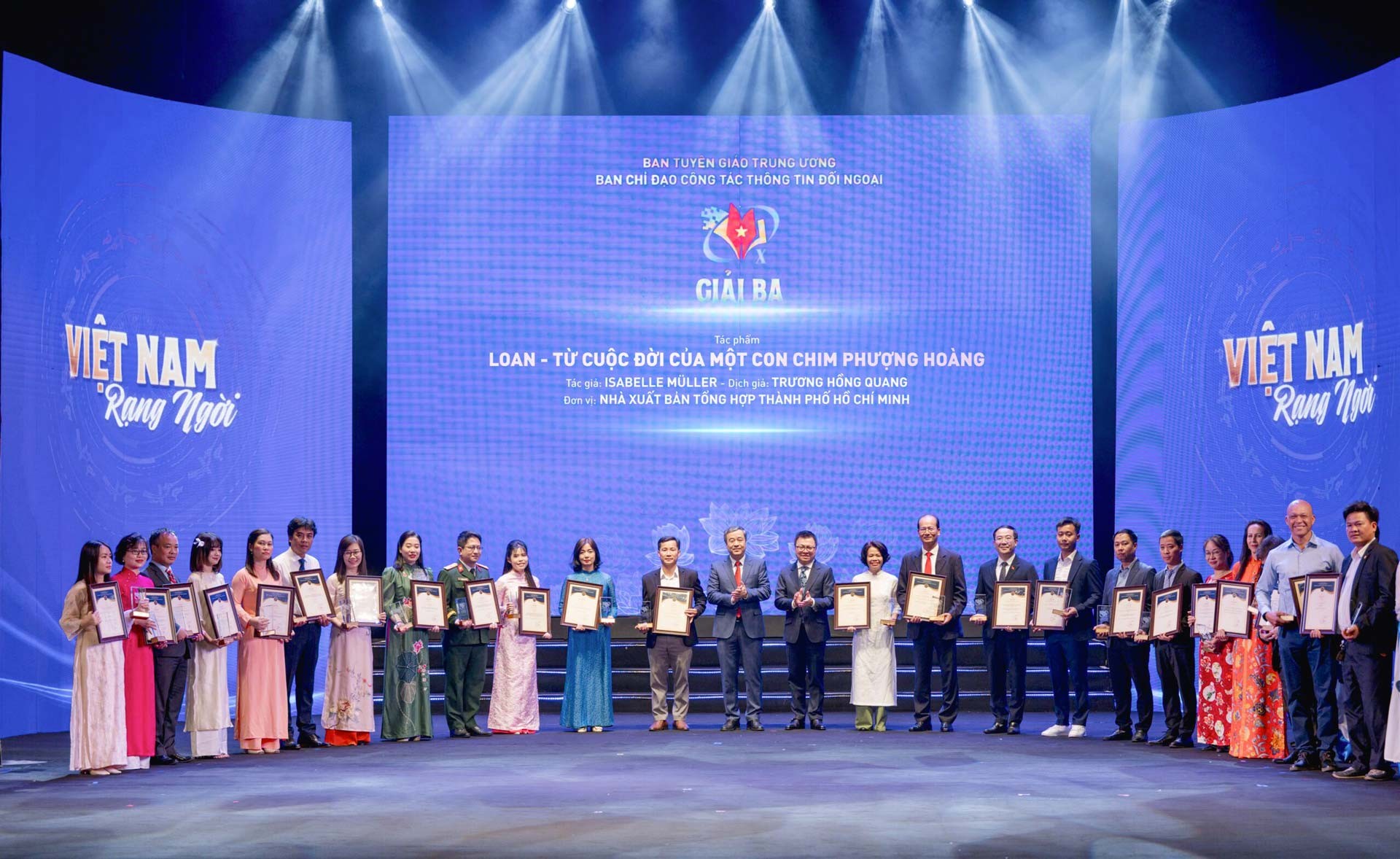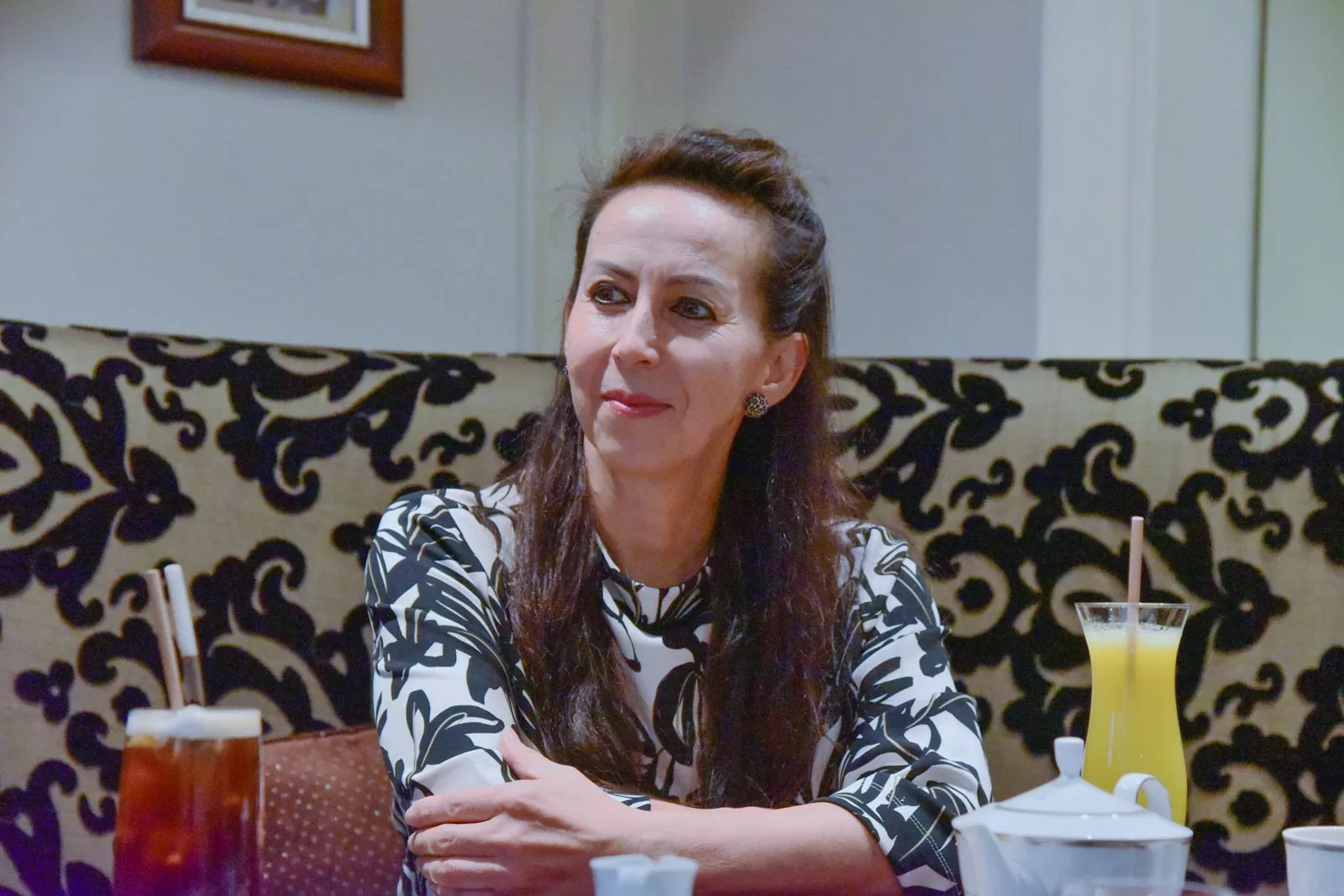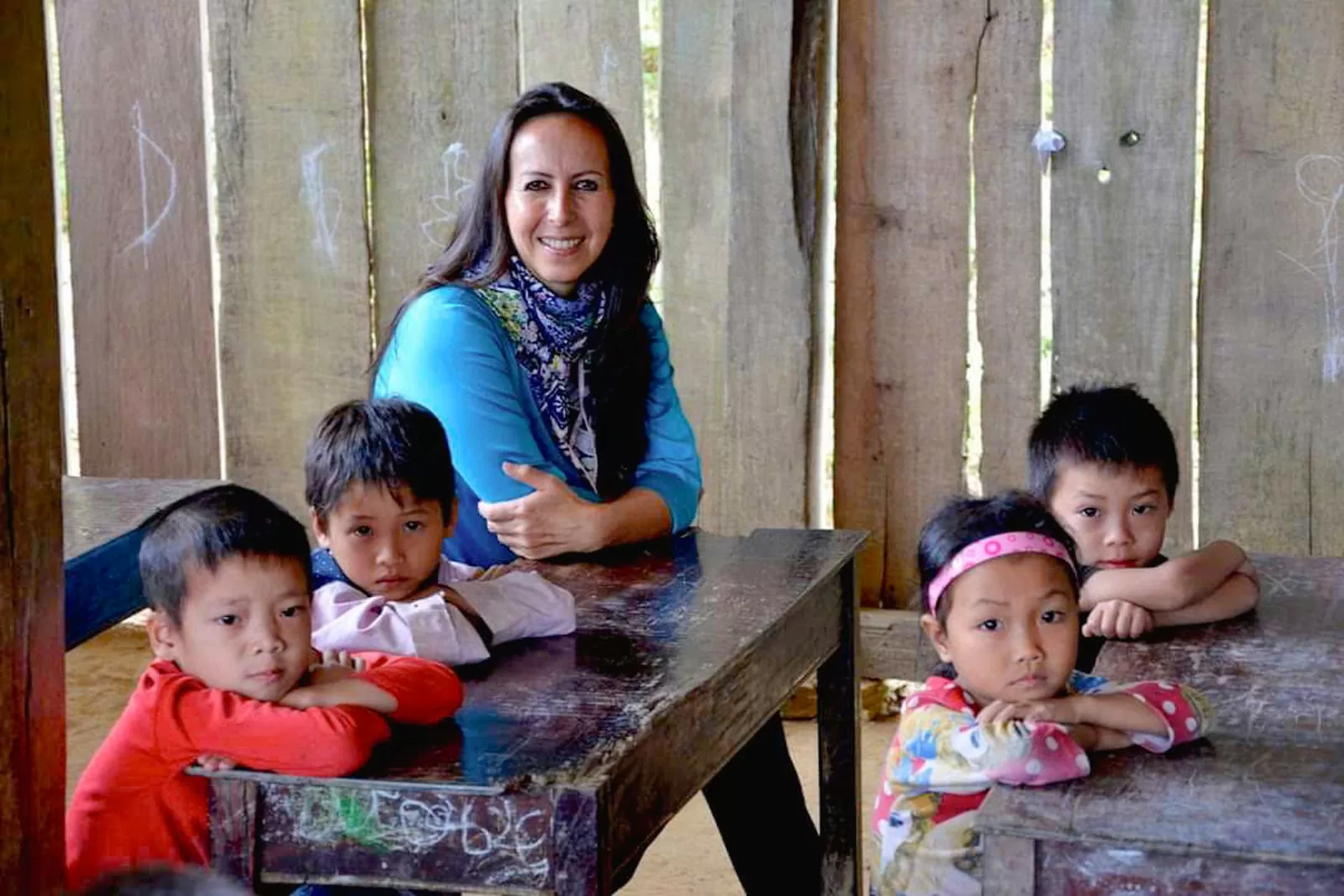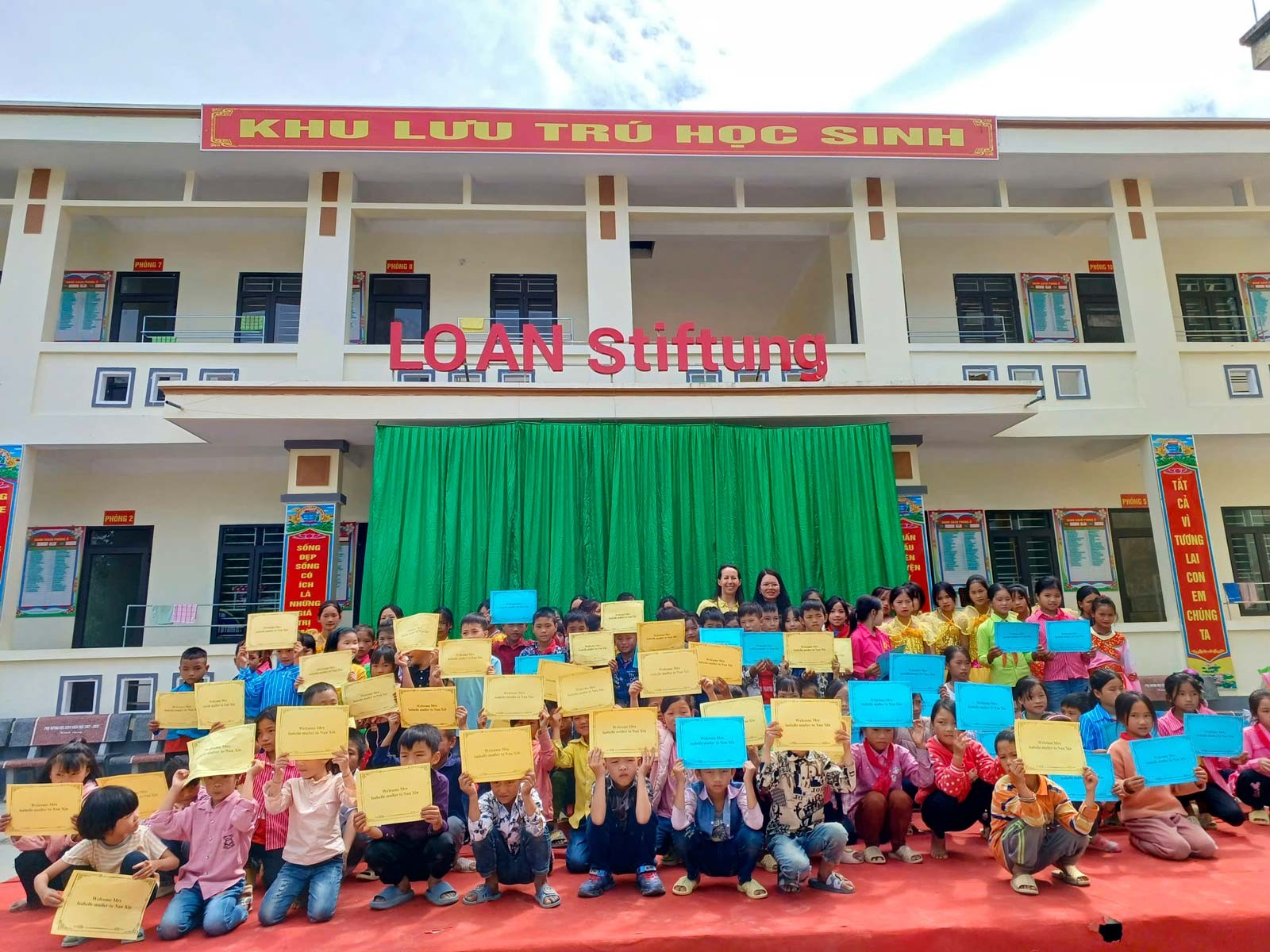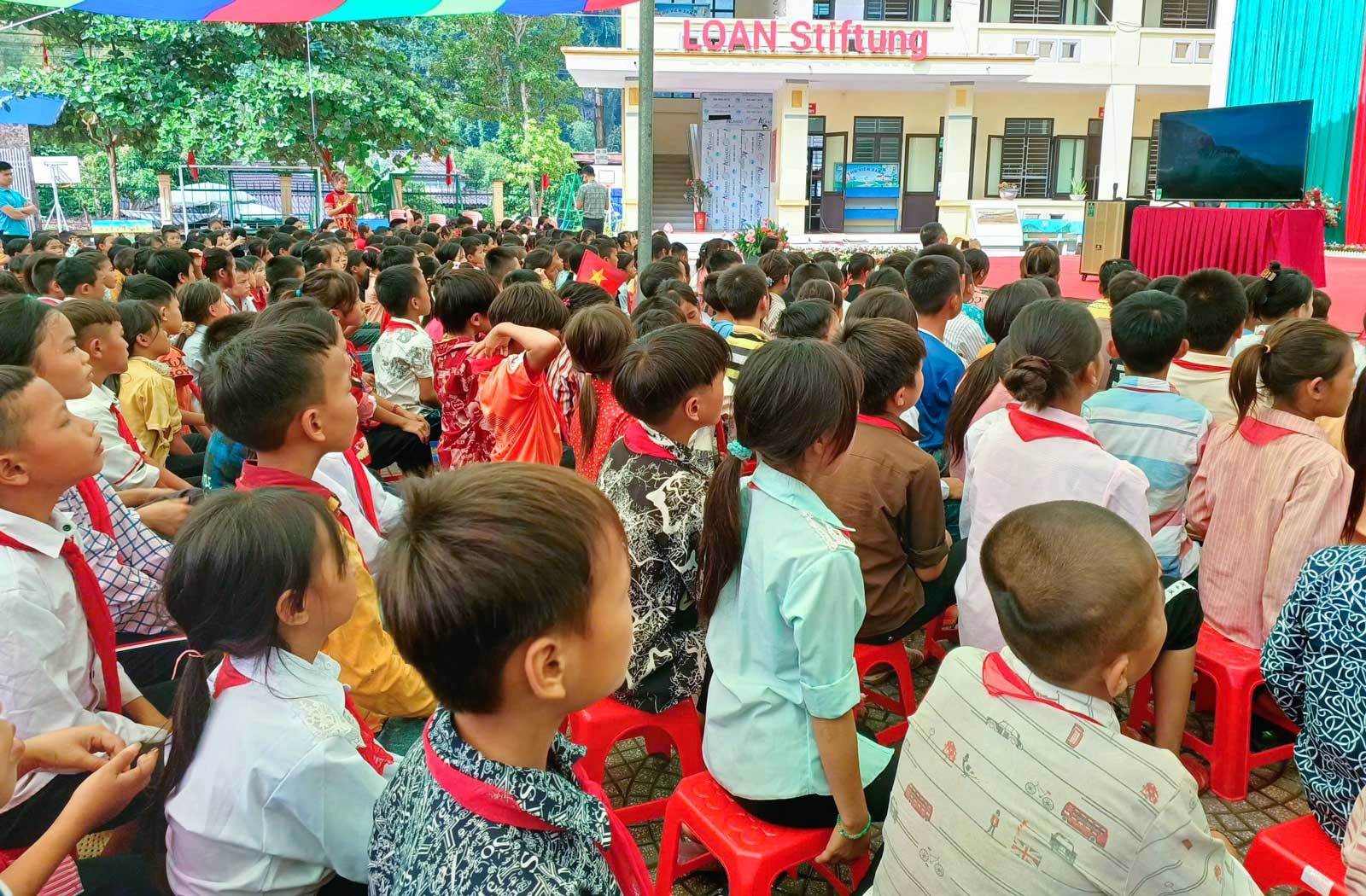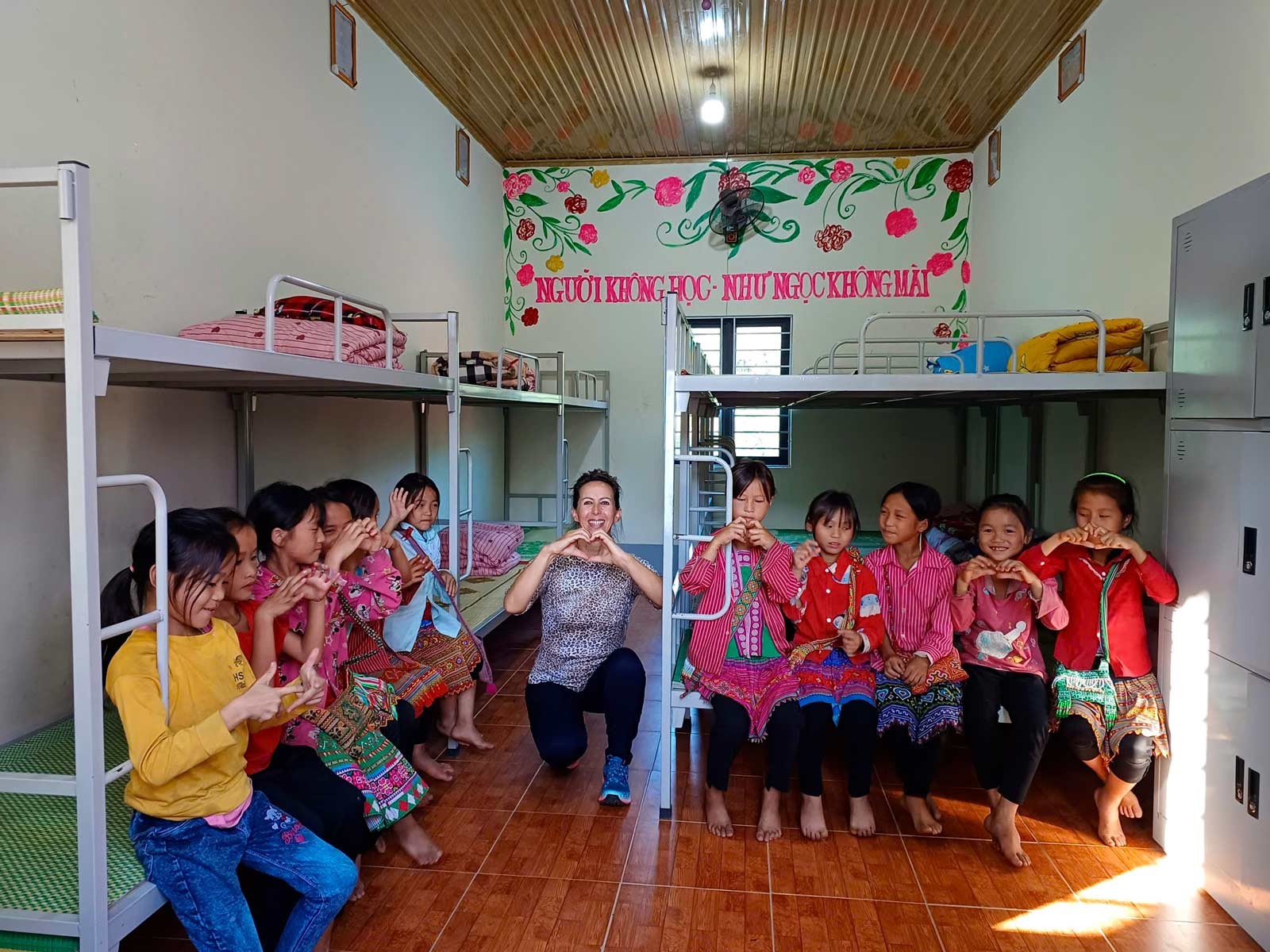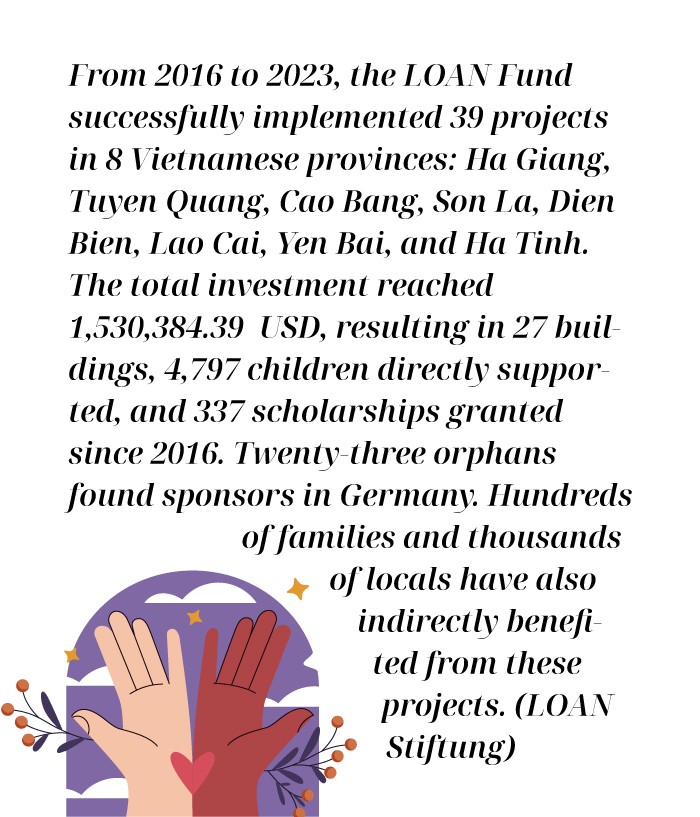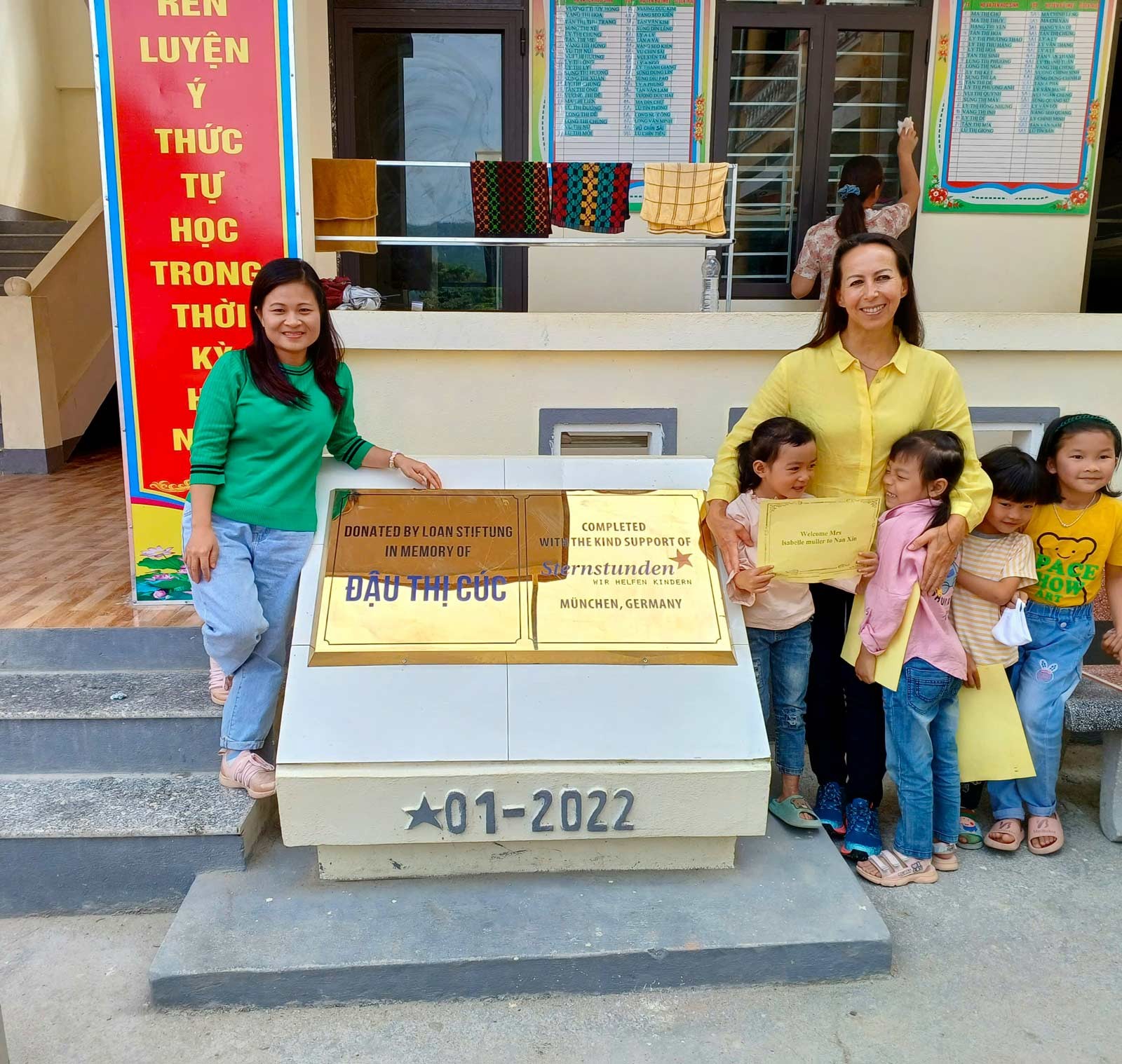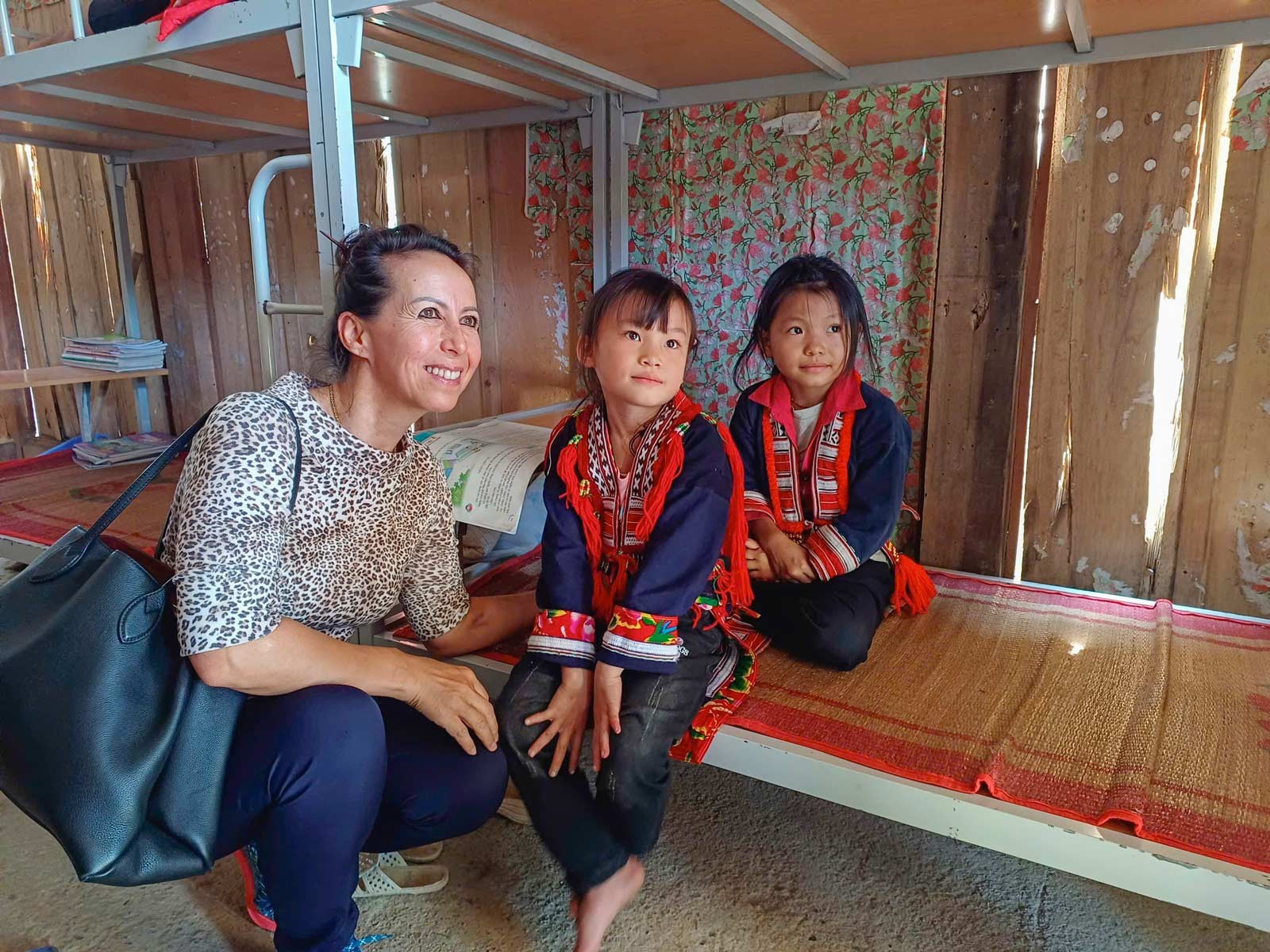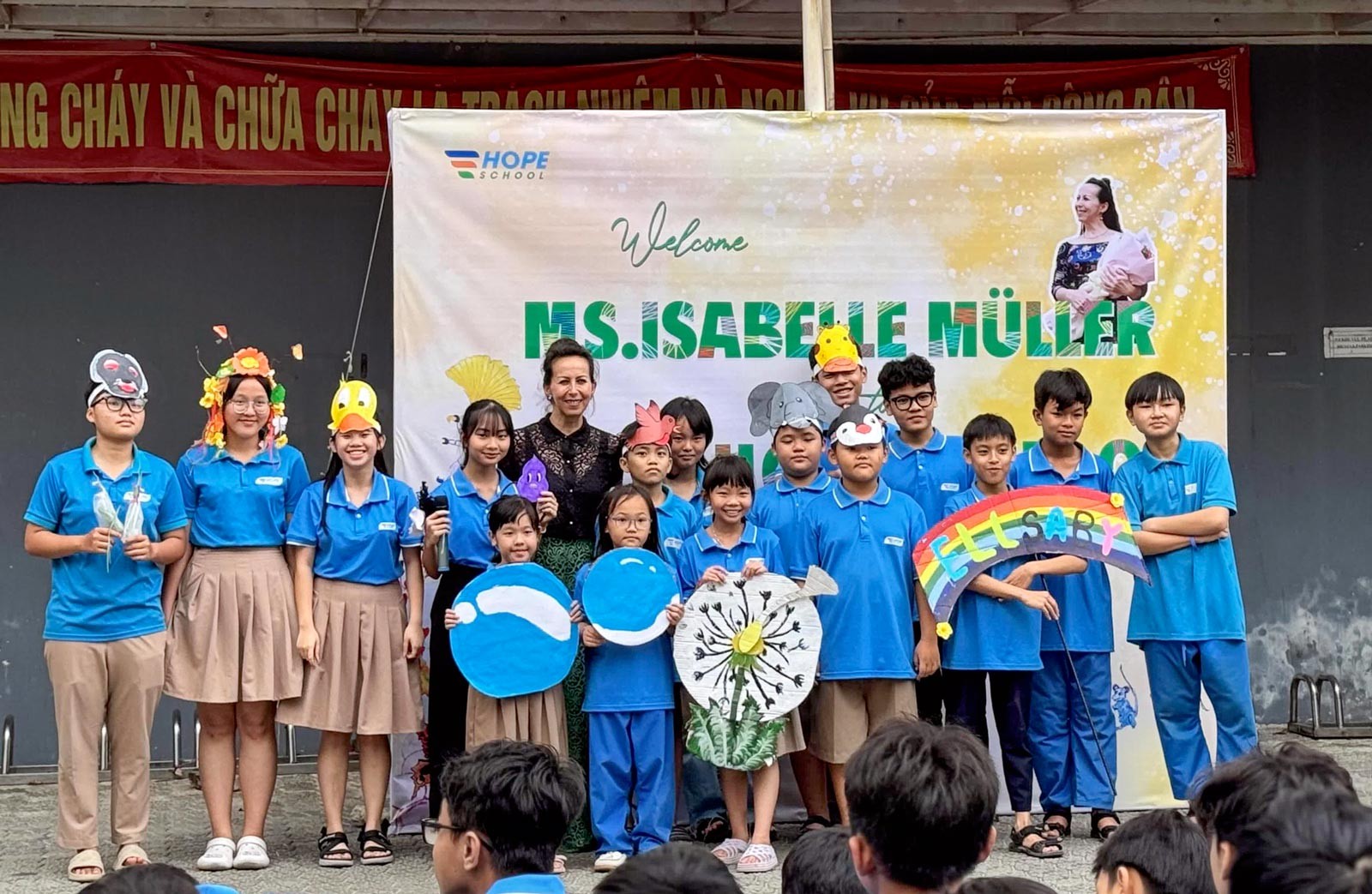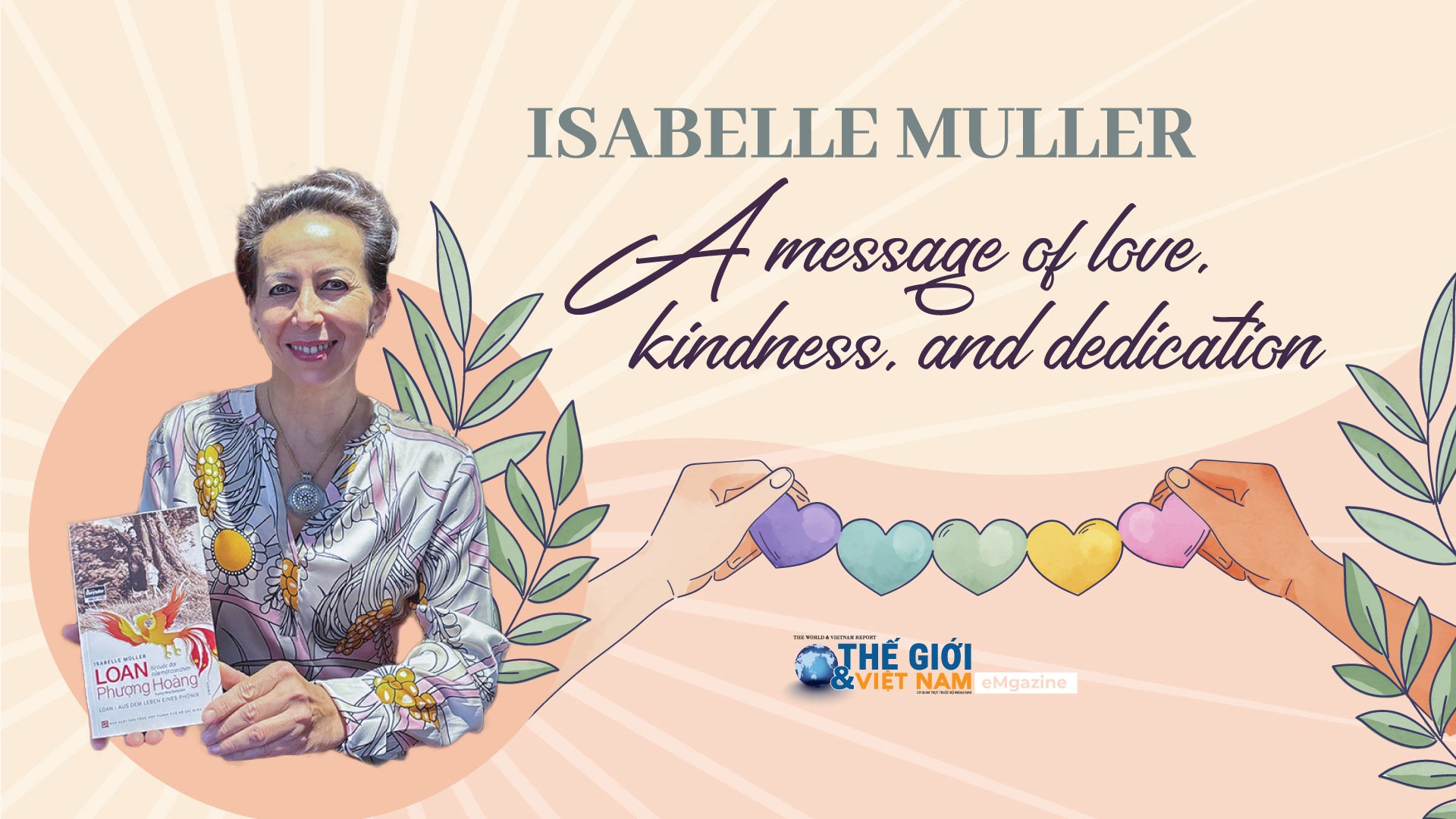 |
| “Loan—from the Life of a Phoenix,” a celebrated publication by Vietnamese-French author Isabelle Müller, recently won third place at the 10th National External Information Awards in Vietnam. In light of this remarkable achievement, The World and Vietnam Report had the privilege of speaking with Mrs. Isabelle Müller to explore her literary journey and the philanthropy that ties her heart to Vietnam—the homeland of her mother, a woman who rose from the ashes of war and prejudice, much like a phoenix. |
|
| Congratulations, Mrs. Isabelle Müller, on your award from the 10th National External Information Awards for “Loan—from the Life of a Phoenix”, a biography about your mother. How do you feel about this recognition, and what does the journey to this achievement look like for you? First, I am deeply honored. This award celebrates my mother, Mrs. Dau Thi Cuc—known to our family simply as Mother Loan. Her story, as a resilient Vietnamese woman born nearly a century ago, reflects the immense struggles and sacrifices she endured during wartime in Vietnam. This book is dedicated to her, and I consider myself merely a storyteller sharing her extraordinary life. The award truly belongs to her. On a personal level, the recognition is a great joy for me and my family. It is heartwarming to see Vietnamese readers resonate with the narrative of a young woman who defied outdated societal norms to seek education and a better life. I’m also pleased that the book has gone into its fourth edition. This speaks to the care and appreciation for my mother’s life and her fundamental message: to spread love, kindness, and dedication. |
| |
|
The book, which took two years to complete, was inspired by my mother’s strength and perseverance. Like a phoenix, she overcame countless challenges—physical and emotional—to rebuild her life. Her message of gratitude, resilience, and love is timeless and universal. I’m also pleased that the book has gone into its fourth edition. This speaks to the care and appreciation for my mother’s life and her fundamental message: to spread love, kindness, and dedication. You must have dedicated hearts and souls as the book reflects not only a personal story but also glimpses into Vietnam's history. Did you approach the writing with this dual purpose in mind? This is a story about life itself. Neither my mother nor I had intentions of presenting her as some historical figure—that’s simply how life unfolded. My mother embodies simplicity. All she ever sought was peace within herself, yet she deeply valued equality and justice. My mother lived through one of Vietnam’s most turbulent historical periods. At the time, she didn’t fully comprehend the forces shaping her circumstances; she was simply trying to find peace. But she was inevitably swept into the tides of history. Observing her life as her daughter has been a profoundly insightful experience. When I wrote this book, it became an incredibly captivating journey. For instance, my mother vividly remembered the conflict in Hai Phong in 1946. After returning to the northern regions, she witnessed the French bombing of Hai Phong Harbor—the true horror of the war. These events, which she saw with her own eyes, became part of the story. For me, retelling my mother’s life wasn’t just about narrating her story—it was an opportunity to delve into how ordinary people of that time viewed their world. Literature often captures grand perspectives but neglects the everyday emotions of its characters and ordinary citizens. During times of war, it is often mothers, families, and ordinary citizens who suffer the most. They endure profound losses—children, spouses, siblings… This pain is seldom portrayed in written accounts. My mother’s story not only depicts the atmosphere of the era but also reveals the real struggles of Vietnam’s people during that time.
Was your mother’s extraordinary life and vision the inspiration for the LOAN Fund, which supports underprivileged children and women in rural and mountainous regions? Yes, indeed. Many readers may already be familiar with the LOAN Fund (LOAN Stiftung), which embodies my mother’s lifelong dream of giving back to her homeland. This award is as much hers as it is mine, that’s why “we” are honored to receive the award. During the 30s, my mother was not allowed to go to school simply because she was a girl. That was why on her path to freedom of knowledge, she willingly risked her own life to acquire a better education for herself. In 1955, my mother decided to follow her husband to France. In a foreign land, she endured rejection and discrimination due to the color of her skin. Despite these challenges, she remained a hard-working and nurturing mother to her five children, emphasizing education as the key to a better life. As her youngest child, I remember the past vividly—the cold, still brick floors we slept on because we didn’t even have a bed. The disdain of those who judged us for our poverty. Yet, amidst the hardship, some strangers walked into our lives, offering kindness without expecting anything in return. Their warmth and generosity gave us strength and hope, inspiring us to one day pay it forward. These values, combined with my mother’s philosophy of life, led to the establishment of the LOAN Fund in May 2016.
However, I can only do what is within my means. Reduced funding inevitably leads to fewer projects, which is a constant concern as I work tirelessly to secure support for the fund. Over the past nine years, the LOAN Fund has provided scholarships to children in remote areas—those who lack the opportunities that their urban peers enjoy. We are currently finalizing a dormitory construction project for students in Ta Van Commune, Quan Ba District, Ha Giang Province. We aim to complete it by September next year, offering a new home for students in this remote mountainous region. In addition, the Loan Fund has awarded scholarships to 250 ethnic minority students studying in Ho Chi Minh City and carried out other educational projects for children in remote areas such as Yen Bai, Lao Cai, Dien Bien, Cao Bang... These activities help students have the opportunity to study and change their lives, thereby creating a brighter future. |
| |
It is known that besides the support from the LOAN Fund, you also have other projects for poor children in remote areas, especially after the devastating impact of Typhoon Yagi. Could you share more about these projects? You know, I was very close to Phú Thọ when a bridge in the province collapsed after the Yagi typhoon. It was a dreadful time, and I could see the destruction of this storm even in Hanoi. I was deeply saddened to see the ancient trees uprooted and fallen everywhere... I felt that many people had suffered because of this, but I was also very proud to see how quickly the government deployed military forces to help people, and how people everywhere volunteered to bring water, and food, and help each other in the midst of this calamity. It was a big sign of unity, and it was truly impressive to me. The first thought that crossed my mind when I saw the devastation of Typhoon Yagi was that I wanted to help the people in the most affected provinces. I didn’t want to just donate to a general fund to be distributed somewhere. I wanted to know exactly how the money would be used, who would receive it, and what would be done with it. I spent about three weeks finding out which schools and students needed help the most because I knew many countries, organizations, and individuals had already donated a lot to help Vietnam. Therefore, my focus, as well as the LOAN Fund’s, was on children. I wanted to directly help some schools and children, especially the kindergartens. Currently, we are supporting five kindergartens in Lao Cai Province and providing scholarships for two orphaned children due to the Yagi Typhoon so they can continue their studies. We found sponsors in Germany with about 32,000 euros for this project, and it was completed within one month. In your book, you share the story of your mother—a woman from an older generation who represented somewhat of a traditional and conservative mindset in Vietnam that women should not go to school or pursue higher education. But your mother thought differently. So, besides material and financial support, does the LOAN Fund also aim to help change the mindset regarding whether young girls and women have the opportunity to access and pursue higher education? You know, this is a topic that needs more discussion, and in fact, I don’t want to change traditions. I just want to change the outdated traditions to make them more relevant today. I mean, traditions are very important because they carry values like respecting family, respecting elders, being kind, and helping each other... These values are very, very precious, whether in the past or today. But what’s important is that men and women should be treated equally. This is a core principle—everyone deserves equal rights.
Women have proven to be very strong. For example, during the war, if it weren’t for the Vietnamese women, it would have been difficult to win. That’s just one example. I also see the great potential of women, even in fields like science and technology. This is not only true in Vietnam but around the world. As you know, in the past, there were famous female writers and scientists, but they had to hide behind male names because, at that time, the idea of acknowledging women as equal to men was not accepted. And in fact, it has been proven that in many cases and fields, women are not only good but sometimes even better than men! In our funds, I don’t create a "women’s revolution" or “let’s go to the streets and fight.” No, not at all. What I want is for women and young girls to be protected and for their strength to be recognized properly. Therefore, our fund helps not just girls, but also boys. I help everyone, wanting them to see a role model, just like my mother was—a person who only wanted fairness, equality, and an independent life. Speaking from my own experiences, I was born in Europe, and grew up in poverty, a girl without money, but receiving a scholarship from the French government to attend university—I seized that opportunity to learn languages because it was the quickest path to completing my studies, finding a job, and becoming independent. Thanks to that, I created my path, developed my potential, and worked hard to achieve a better life. Looking at me, these children can see that this is possible—to develop their abilities. I think so! Because that’s a rule of life. Rules might be very good at a certain time, but time always moves and develops, which means you need to adjust the rules to fit the era. |
| |
| This return trip may be your hundredth visit to Vietnam to contribute to your homeland. How do you feel about the changes happening in Vietnam, including the practical contributions you have made, and where do you think Vietnam will be in the future? Vietnam has changed dramatically since I first visited in the 90s after the economic sanctions were lifted. At that time, Vietnam, and Hanoi in particular, were very poor and faced many difficulties. In those years, there were only a few bicycles on the streets, and you would rarely see a car driving by. The scenery was very peaceful, but you could still feel the remnants of the war. But now, everything has developed so much! Hanoi is filled with high-rise buildings, and the streets are extremely busy... But, in reality, I still cherish and remember the traditional beauty of Hanoi more than other modern cities like Ho Chi Minh City or Da Nang because Hanoi has preserved many of its traditional features. Hanoi has developed more, becoming more lively and modern now. The city is always bustling, with people rushing around to work, do business, and stroll the streets for leisure… I can feel the joy and happiness of the people on the streets and in the shops, even though there are still some challenges. I know the average income of Vietnamese people is not as high as many places in the world, but the development is impressive, and I see that people are embracing these changes with joy and great hope for the country's progress. With this pace of development, I’m sure Vietnam will be in a different position in the future because Vietnamese people, like my mother, are very hardworking and dedicated, especially in the field of education. I’ve seen these advancements in young families; parents of my generation have understood that the key to a better future is education. That’s why many families have worked hard to save money to invest in their children’s education. One thing I’ve noticed is that the children I meet today are very smart, know how to develop their potential, and are very confident. The children can speak two or three languages. When I see this, I know that in the future, they will have many opportunities to develop their skills anywhere in the world. This makes me very happy! Thank you so much! By Duc Khai, Pham Hien | Design by Lim Dim | Photos by Duc Khai, LOAN Fund |

